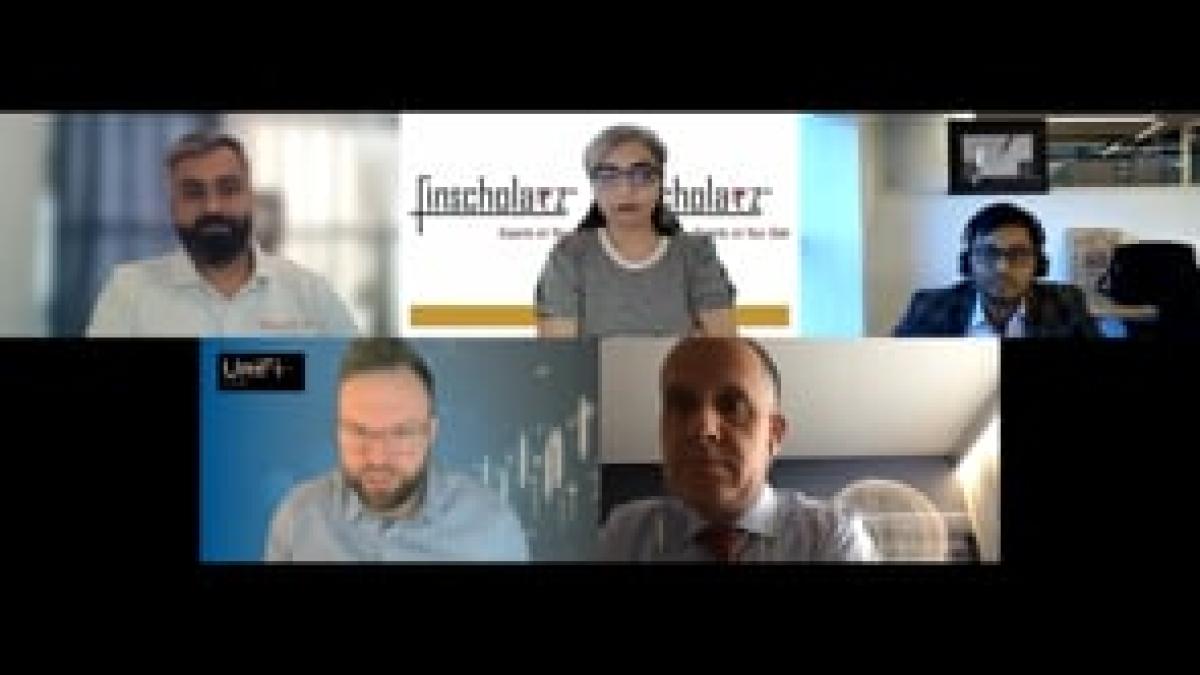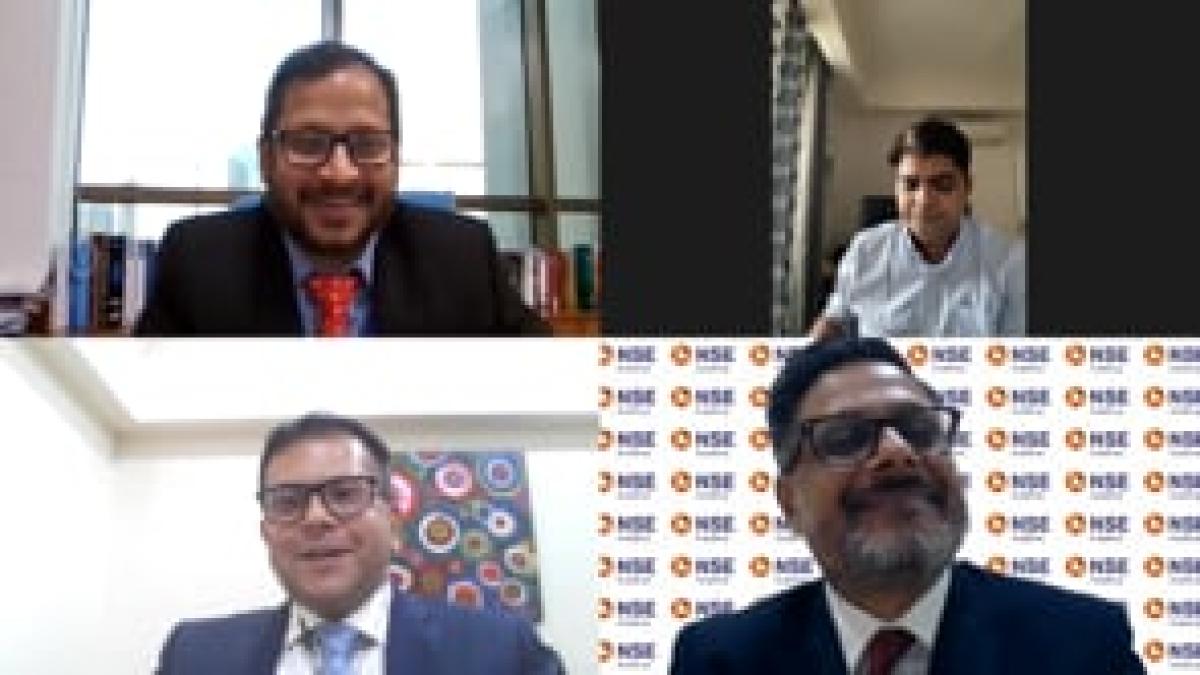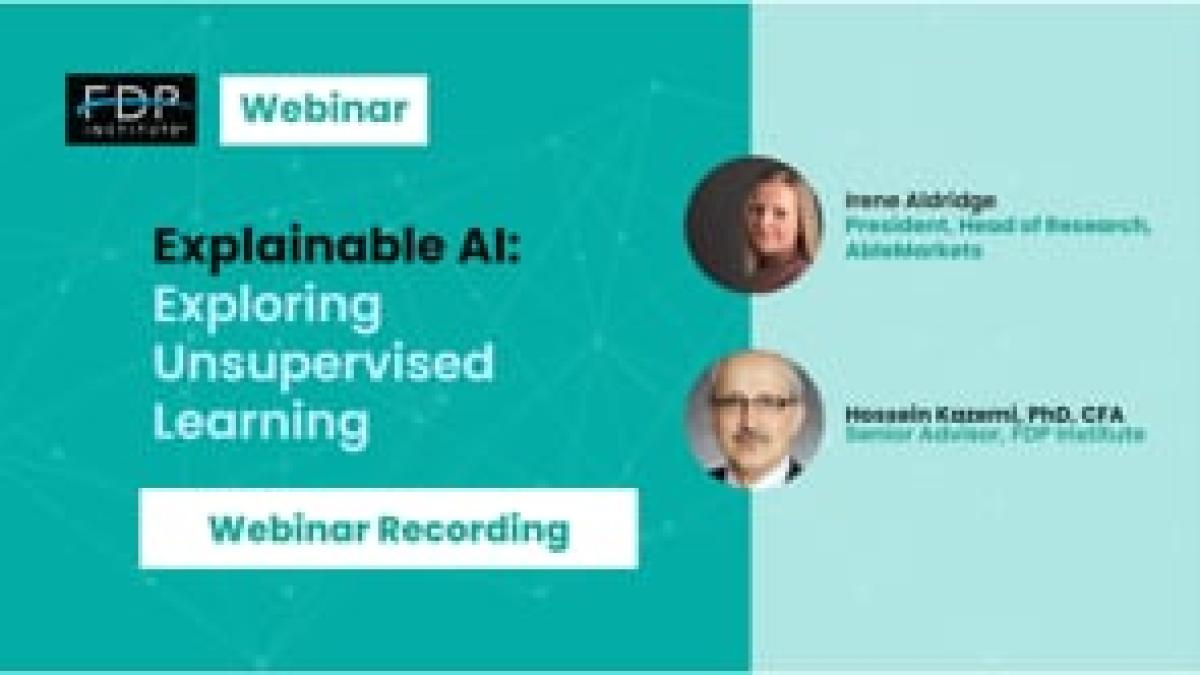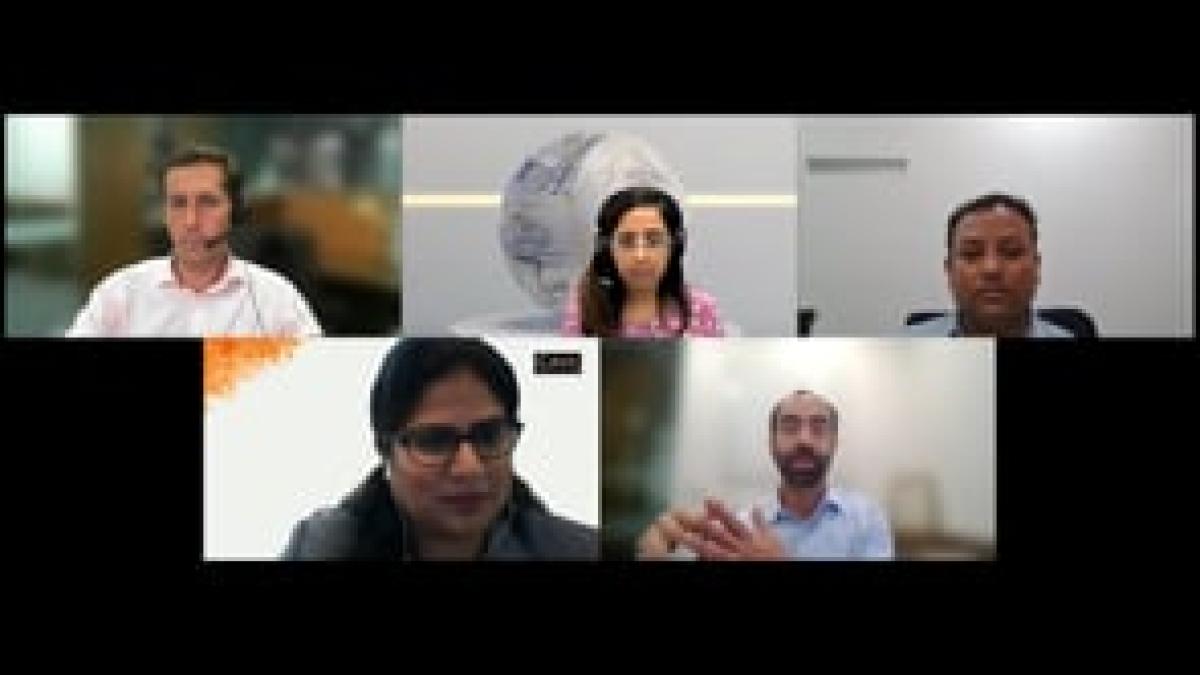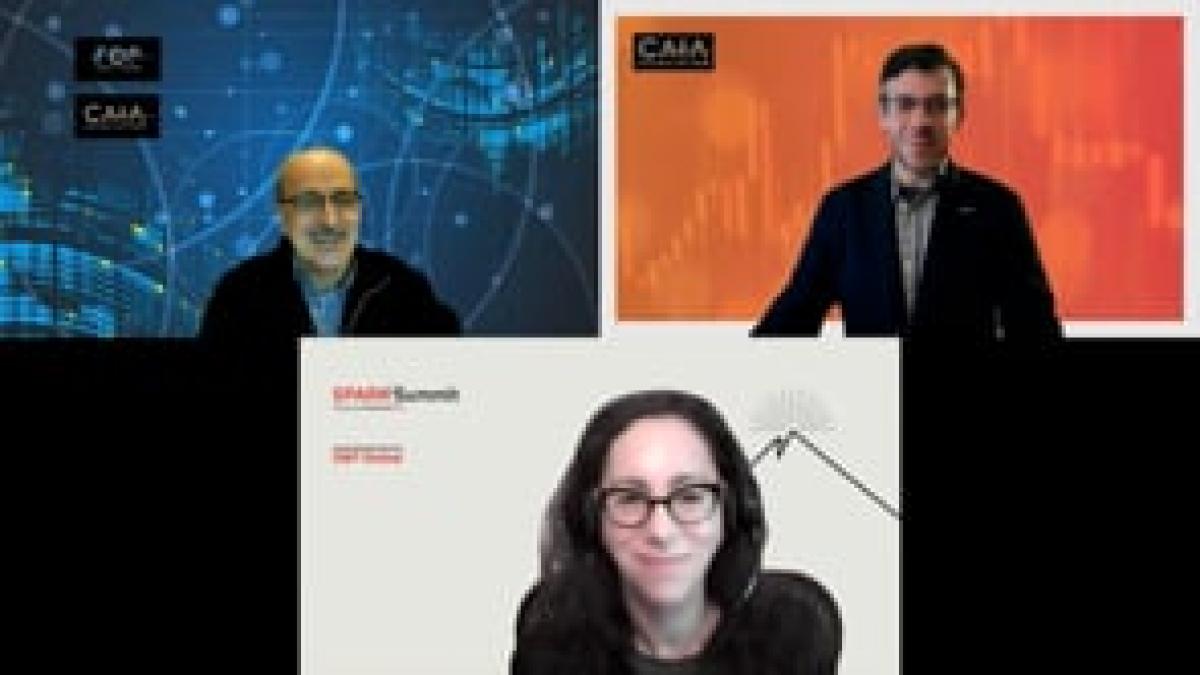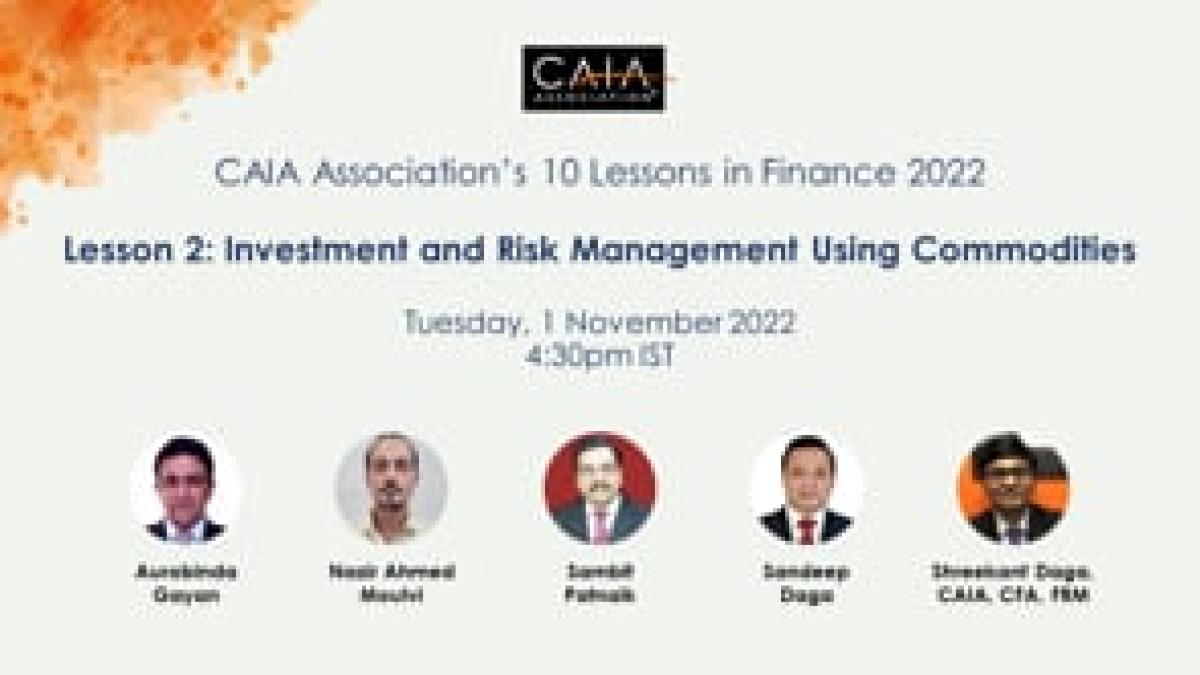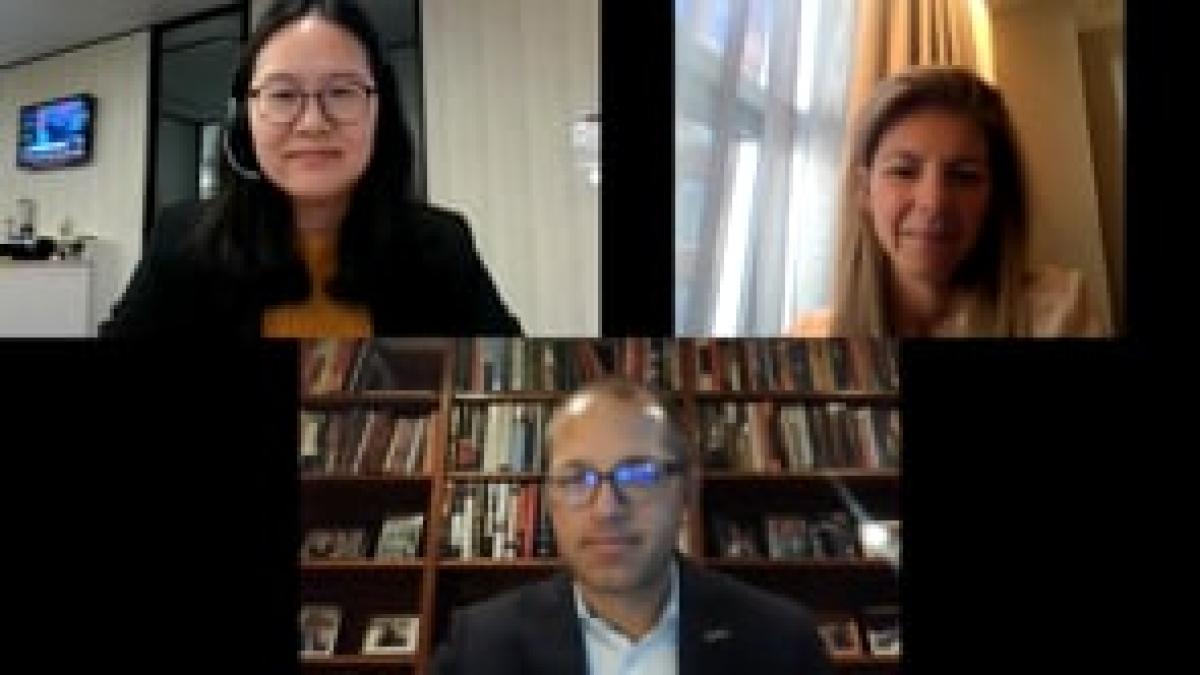Recorded Webcasts
This webinar focused on how wealth management firms through private bankers or registered investment advisors are helping build diversified portfolios with the help of alternative investments. It took a dive into investment literacy challenges, building risk-return expectations, meeting client objectives and constraints while balancing competition and AUM targets. The viewpoints shared contrast between emerging and developed markets. Given the lower correlated nature of private assets with public assets the thoughts shared are to help build better efficient frontiers for the client.
The webinar began with a short presentation detailing portfolio construct thumb rules. This was followed by a moderated panel discussion with time for audience Q&A at the end.
Investment Risk Management is an intriguing but complex area and the objective of this webinar is to simplify it.
The overall value of investment faces threat from various risk factors and it is vital to uncover all of them for a healthy financial ecosystem. Key risk groups, such as market, credit, operation, and liquidity are at play at different times for different entities. Risk management can be accomplished by diversification using alternative investments. However, Financial institutions, in times of crisis or otherwise, are required to use regulatory and supervisory oversight to define a meaningful risk-appetite framework and accomplish risk management.
Key Aspects covered:
- Risk types and their role
- Deciphering Investment Risk Management
- Investment Risk Management: Emerging trends and Challenges
- Alternative Investment and risk management
- Regulatory considerations
- Risk Appetite
Often times the louder voice prevails but it may not be representative of the eco-system.
In this webinar, we assembled Mumbai-based young enthusiastic business founders, heard their thoughts on the Venture Capital (VC) industry, and learned about its funding mechanics. The switch here is that we heard what the investee company think about the VC investments they receive. The founders shared their thoughts and insights on fund raising activities, and revealed the good, the great, and the ugly from their experiences.
This webinar provided solid perspective on the collective success of enterprise creation for in the founders success lies the success of the investor.
We welcome you to a ringside seat for a view on VC investing.
Artificial Intelligence (AI) has been a great buzzword in scientific and business communities and even the popular press. This webinar was designed to explore the technology underlying AI, known as “unsupervised learning.” Unsupervised learning allows us to hear the data speak for itself, reducing reliance on researchers’ potentially biased frameworks and sometimes discovering unexpected factors. In the course of the webinar, we considered AI applications in Finance and contrasted those with traditional machine learning (ML) models. FDP Institute's Hossein Kazemi discussed Explainable AI with Irene Aldridge, President, Head of Research at AbleMarkets.
Alternative investment funds (AIFs) have gained much traction in India and overseas in recent years, especially among high net-worth individuals, as they warm up to sophisticated capital market instruments. With the increasing popularity of the product it becomes very important to provide better access to these products in terms of disclosures and benchmarking to enable investors take an informed decision.
During the course of the presentation we discussed in detail the benchmarking of AIFs. It helped the audience gain insights into the following aspects:
1. AIF as an important avenue to invest in India
2. Nuances of benchmarking in AIFs
3. Various categories and sub-categories of AIFs present in India
4. Trends observed in AIF benchmarks in the past 2 years and methodology used to calculate the benchmarks
5. Qualitative aspects to consider before investing in an AIF
Gold has remained the most precious asset in our lives ever since the concept of wealth creation was curated by human civilisation. Our country is the second-largest consumer of gold worldwide, and Indian people possess a profound attachment with gold, considering it an integral part of auspicious occasions. The webinar covered the drivers of gold demand in India. Thoughts on why gold is to be looked at as a strategic asset class were shared.
As digital assets continue to gather broad appeal as an asset class, and flourish by creating an entirely new financial ecosystem, it is important to understand how we define these assets, their key characteristics, the regulations related to this emerging asset class, and challengers when accessing to these assets. In this session, Sharon Liebowitz, Senior Director of Innovation and Strategy Indices at S&P DJI was joined by Steve Novakovic, MD Curriculum, CAIA Association and Hossein Kazemi, Senior Advisor, FDP Institute to deep dive into the digital asset ecosystem, analyzing the performance attributes and potential risk of digital assets; how innovative solutions such as digital asset indices could potentially provide market participants to measure and assess this emerging asset class; and the future development of the digital asset landscape.
This webinar focused on commodities with an eye on risk management and financial gain. The coverage was as follows:
1. Commodity derivatives have 2 roles – first – used as a tool of risk management (hedging) for mitigating the price risk. This is generally done by commodity producers/ consumers; second – is investment purpose – i.e. investors trade in commodities in anticipation of making profit from such investment;
2. In order to undertake hedging appropriately, it is important to understand the modalities and mechanism of hedge transactions.
3. Taxation and accounting rules are progressively being reformed to encourage commodity price hedging;
4. In recent times there is growing interest in commodity investing because of their unique characteristics like the ability to hedge inflation risk, insure against event risks, portfolio diversification etc. The entry of Mutual Funds in the commodity space is also taking commodity investment to retail investors.
5. Commodity investment is unique as exposure to commodities (generally) involves exposure to two asset classes: (i) Commodity and (ii) US dollar. Commodities offer a natural hedge against exchange rate risk of US dollar since they are traded in dollars. Hence, inclusion of commodities is an effective way of portfolio diversification of equity and bond portfolios.
How can investment professionals meet their clients' needs under ever-changing economic and market conditions? We call future-proofed portfolios the Portfolio for the Future™. The five distinct marks of the Portfolio for the Future™ are the defining features of all-weather portfolios that meet the challenges of the global economy and capital markets. The 5 marks are – Broadly Diversified, Less Liquid, Rooted in a Fiduciary Mindset, Actively Engaged and Dependent on Operational Alpha.
Tune in to entail on an exciting webinar journey which will cover a range of topics around the investment dynamics for an ardent finance professional.
This web seminar featured members of the CAIA Curriculum Team as well as Candidate Relations. The following topics were discussed:
- Curriculum Materials
- Exam Format
- Review of Exam Topics
- Available Resources



